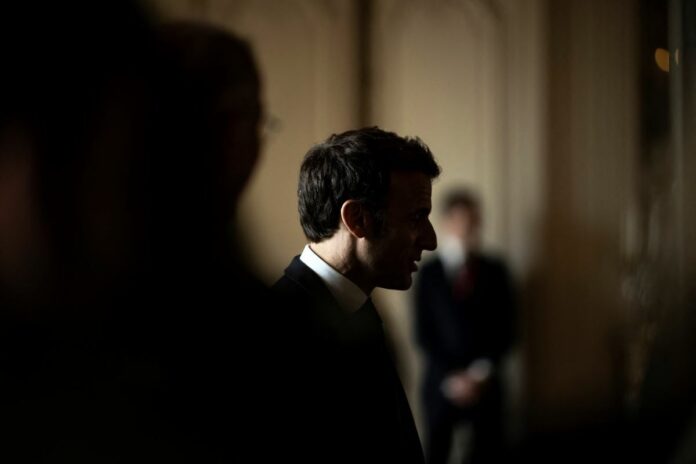A little over a year after his re-election, Emmanuel Macron is facing a climate of political and social tension. After the adoption of the controversial pension reform, the president is at the lowest of his popularity rating (26%). Already at his re-election, some had foreseen a second five-year term more difficult than the first.
It must be said that the re-election of Emmanuel Macron, with 58.5% of the vote, appeared more like a default choice rather than a plebiscite. Indeed, Marine Le Pen (RN) obtained an unprecedented score with nearly 41.6% of the vote. Abstention also reached a record level (28%). For Le Monde, “this victory is rather due to a search for the status quo and a rejection of the far right.”
In 2022, Emmanuel Macron did not openly campaign for the renewal of his presidential mandate. So, voluntarily or involuntarily, the Head of State transformed his first five-year term into a mandate of ten uninterrupted years in the eyes of the French. So the voters showed their dissatisfaction in the legislative elections in June.
At the end of the legislative elections, marked by a historic abstention (52.4%), the presidential camp retained only 250 seats out of 577, i.e. 39 votes from an absolute majority. The double breakthrough of the left and the RN was a slap in the face for the president. Was this difficult start to the second term all mapped out? Is the President a victim of the curse of the Fifth Republic?
A constant emerges from all the second presidential terms since the beginning of the Fifth Republic. As affected by a curse, all end badly for the president in office. Starting with the founding father of the Fifth Republic. In 1969, Charles de Gaulle did not complete his second term, resigning after his referendum failed.
Moreover, the second seven-year term of François Mitterrand, re-elected in 1988, did not leave a good memory with the French. History will remember the financing affairs of the Socialist Party and the revelation of the Head of State’s troubled relationship with Vichy. Similarly, after a first term marked by cohabitation, Jacques Chirac experienced a difficult five-year term. His successor at the Élysée, Nicolas Sarkozy, nicknamed him the “lazy king”.
As for Nicolas Sarkozy, Valéry Giscard d’Estaing and François Hollande: they failed, or did not wish, to run for a second term. In other words, all of Emmanuel Macron’s predecessors had a difficult second term. What to expect next?
After the presentation by Elisabeth Borne of a “100-day” roadmap on April 26, 2023, the president decided to start new legislative projects to turn the page on pension reform. “Higher education, green industry, energy… The agenda is full. For some topics we don’t need a law, for others when a law is needed we will build a majority “, said Emmanuel Macron to our colleagues from Challenges.
The large number of projects to come for this second term raises questions. During the presidential address of April 17, the opposition had already expressed concern. For the president of the Republicans Eric Ciotti, the new sites are “a catalog of pious wishes without the slightest questioning.” According to Jean-Luc Mélenchon, leader of rebellious France, “his second wind, his new start has failed”.
History alone will tell us if Emmanuel Macron will also be affected by the curse of the Fifth Republic.





